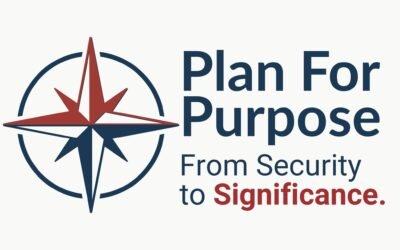Fifteen years ago, when my father passed away, my mother’s life changed overnight. He had been the one to handle almost everything, finances, errands, household decisions, and the little day-to-day details that keep a home running. Without him, she faced an overwhelming new reality.
Eventually, she moved in with my sister, and together we became her support system, emotionally, logistically, and financially. We helped her navigate life’s details, manage her wellbeing, and feel safe and cared for in the absence of the partner she had relied on for so long.
That support has continued to this day. Eighteen months ago, my mother faced another major challenge: brain surgery. It was a moment of fear, uncertainty, and prayer. Thankfully, she came through the procedure and recovered, a testament to her resilience and determination. Even now, we remain closely involved in her life, helping her maintain her independence while making sure she has everything she needs.
The Generational Shift
Looking at our situation, I can’t help but wonder, are we among the last generation able to devote this much personal time to our parents?
Our parents and grandparents grew up in an era where family caregiving was almost assumed. Adult children often lived nearby, or even in the same home, and stepped in as primary caregivers when needed. Work schedules were demanding, but the pace of life was slower, and communities were more tightly knit.
Today, that landscape is changing:
• Dual-Income Necessity – Most households depend on two incomes, making it harder to dedicate hours each day to caregiving.
• Geographic Separation- Career and education opportunities often take children far from their parents’ hometowns.
• Longer Lifespans & Greater Needs – Our parents are living longer but often face complex health challenges that require specialized care.
• Professionalized Support – Home health aides, assisted living communities, and care agencies are becoming part of the plan from the start.
The Heart of Caregiving Is Changing, Not Disappearing
While the form of caregiving is evolving, the commitment remains. The next generation’s care for their parents may look more like:
• Coordinating medical care and services.
• Overseeing finances and insurance.
• Advocating for compassionate, high-quality care.
• Making the most of quality time together, even if visits are less frequent.
The role is shifting from hands-on daily provider to care manager and advocate. And while it’s different, it can still be deeply meaningful.
The Emotional Reality
For those of us who have lived through the intense, hands-on caregiving years, there’s a bittersweet truth: yes, it can be exhausting and demanding, but it’s also a way of honoring our parents and repaying their love in tangible ways.
Our children’s lives will likely look different, faster-paced, more geographically spread out, and less able to accommodate the same caregiving model. That’s not a reflection of love; it’s a reflection of the world they live in.
Preparing for Our Own Later Years
This realization prompts a question: If our children can’t care for us in the same way we’ve cared for our parents, how do we prepare?
• Build financial resilience – Plan for the possibility of professional care, whether at home or in a facility.
• Know your options, Learn about long-term care resources, insurance, and communities that support aging with dignity.
• Communicate openly, Discuss expectations with your family while everyone is healthy and clear-headed.
• Design your later years with purpose-Make choices that give you security, independence, and connection.
By planning now, we can ease the burden on our children, preserve our dignity, and ensure we have the care we need, without leaving everything to chance.
The Call to Action
If you are caring for a parent today, know that your role is both rare and precious. If you’re looking toward your own later years, don’t wait for a crisis to start the conversation.
Start planning now, financially, logistically, and emotionally. Your future self, and your family, will thank you.
Discover how conscious and intentional living can reshape your health, purpose, legacy, and impact by booking a free consultation with us at www.planforpurpose.com. Also purchase a copy of our book “More Than Just A Payout: How Life Insurance Builds Security and Opportunity” @ https://a.co/d/eAEQe78
#Caregiving #AgingParents #FamilyCare #LifePlanning #LongTermCare #GenerationalChange #ElderCare #FamilyFirst #PurposefulLiving #PlanForPurpose #AgingWell
![Blog_Image[1]](https://planforpurpose.com/wp-content/uploads/2025/07/Blog_Image1.jpg)


0 Comments